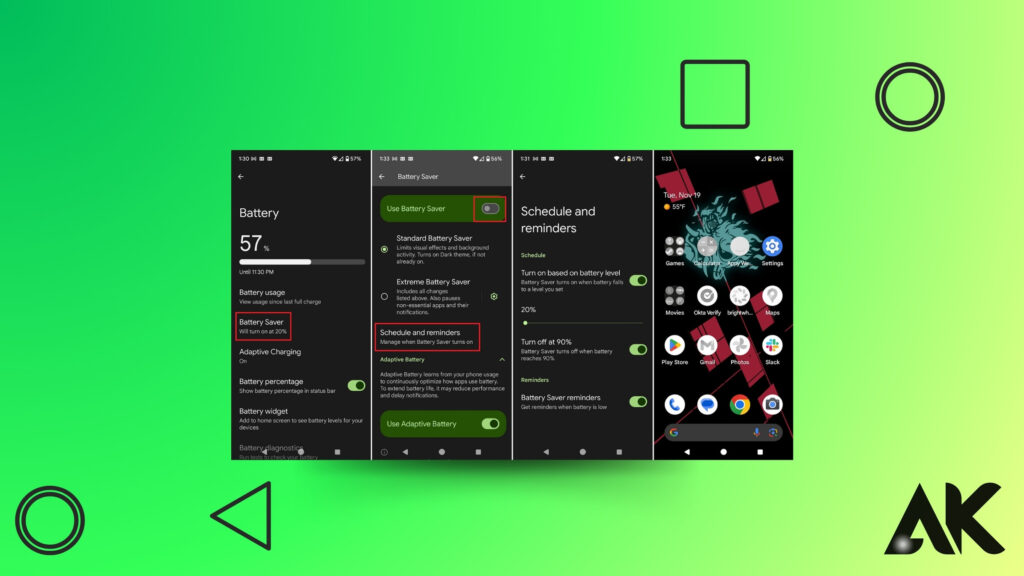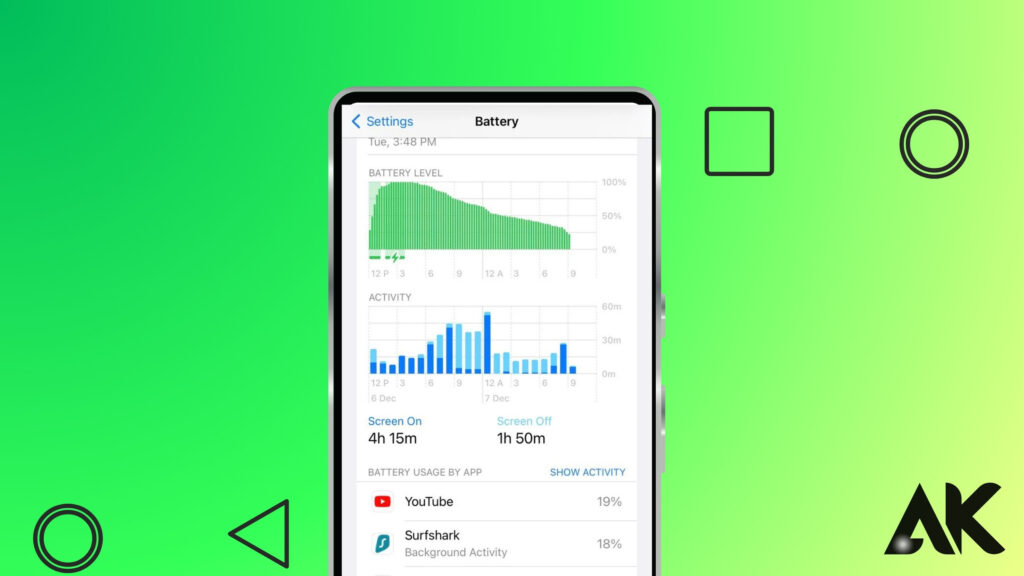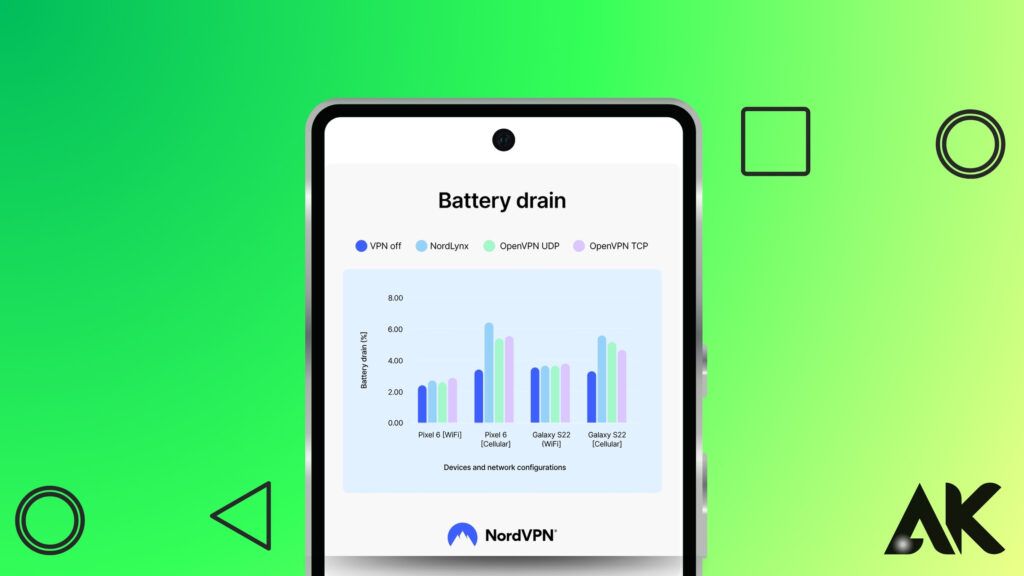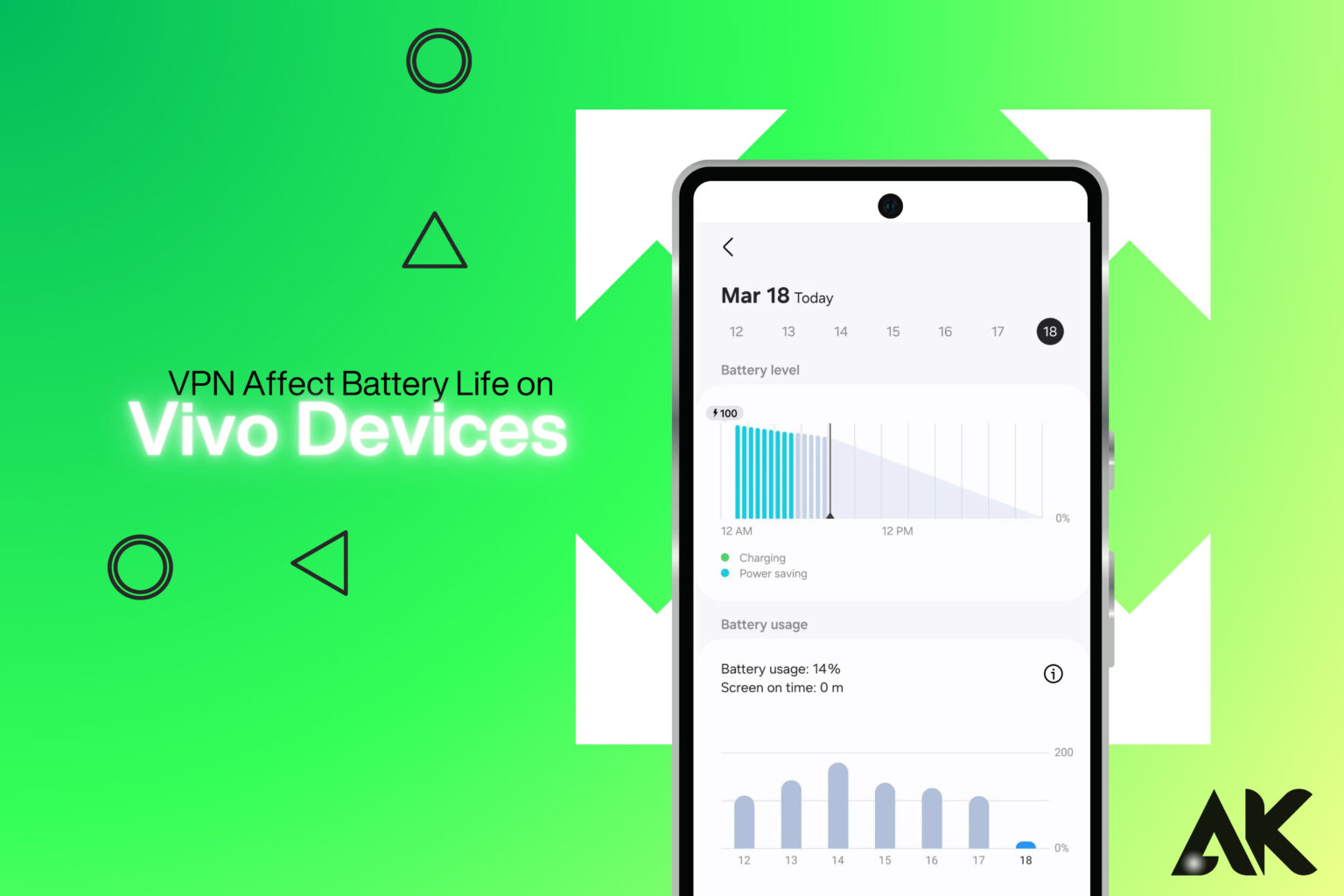How does a VPN affect battery life on Vivo devices? If you use a VPN on your Vivo smartphone, you might have noticed a change in battery consumption. A virtual private network (VPN) encrypts data and routes it via a distant server to safeguard your internet connection. This improves security and privacy, but it may shorten battery life. However, what is the impact?
We’ll go over five important facts on how VPNs impact Vivo devices’ battery life in this blog. Additionally, we’ll offer advice on how to maximize battery life while maintaining your online safety.
1. VPNs Consume More Battery Due to Encryption

Your Vivo smartphone encrypts and decrypts data before sending and receiving it each time you connect to a VPN. Processing power is needed for this additional security measure, which may result in higher battery usage.
Why Does Encryption Affect Battery Life?
- High Processing Power: Stronger encryption (e.g., AES-256) demands more CPU usage.
- Continuous Data Exchange: VPNs maintain a secure tunnel, leading to constant background activity.
- Device Heat: More processing generates heat, which can drain the battery faster.
If you notice faster battery drain when using a VPN, encryption is a major factor.
2. Server Distance Impacts Battery Consumption

The further a VPN server is from your location, the more energy your Vivo device uses to maintain the connection.
How Does Distance Affect Battery Life?
- Longer Connection Time: A distant server increases latency, requiring more effort to send and receive data.
- Frequent Reconnection: If the server is unstable, your phone may disconnect and reconnect, draining battery life.
- Higher Data Usage: A distant VPN server may slow down speed, leading to longer load times for streaming or browsing.
Solution:
To reduce battery drain, choose a VPN server closer to your actual location whenever possible.
3. VPN Protocols Influence Power Consumption

Not all VPN protocols are equal when it comes to battery efficiency. Some consume less power, while others demand more resources.
| VPN Protocol | Battery Usage | Speed | Security |
|---|---|---|---|
| WireGuard | Low | Fast | High |
| OpenVPN (UDP) | Moderate | Fast | High |
| OpenVPN (TCP) | High | Slow | High |
| IKEv2/IPSec | Low | Fast | High |
Which VPN Protocol is Best for Battery Life?
- WireGuard is the most power-efficient while maintaining strong security.
- IKEv2/IPSec is also battery-friendly and great for mobile devices.
- OpenVPN (TCP) consumes more battery due to constant data verification.
For better battery performance, select WireGuard or IKEv2/IPSec in your VPN settings.
4. Background VPN Activity Drains Battery Faster
In order to protect your connection even when you’re not actively surfing, VPN applications operate in the background. This can cause needless battery consumption.
Why Does Background Activity Use More Battery?
- Persistent Connection: VPNs stay connected to servers even when idle.
- Auto-Updates & Syncing: Some apps refresh data in the background through the VPN.
- Push Notifications: VPNs may reroute notifications, using additional power.
How to Reduce Background Battery Drain?
- Disable VPN when not needed (e.g., turn it off while using trusted Wi-Fi).
- Use split tunneling to allow some apps to bypass the VPN.
- Restrict background activity for VPN apps in battery settings.
5. VPNs Can Affect Battery Life Differently on Different Vivo Devices
Not all Vivo smartphones experience the same level of battery drain when using a VPN. High-end models with powerful processors handle VPN encryption more efficiently, while budget models may struggle.
Factors That Influence VPN Battery Usage on Vivo Devices
- Processor Strength: Devices with newer, more efficient chipsets consume less battery when encrypting data.
- Battery Capacity: Phones with larger batteries last longer, even with VPN usage.
- Software Optimization: Vivo’s battery management system can limit VPN background activity to save power.
Best Vivo Phones for VPN Usage
If you frequently use a VPN, these Vivo devices offer better battery performance:
- Vivo X100 Pro (5000mAh battery, Dimensity 9300 processor)
- Vivo V29 Pro (4600mAh battery, Snapdragon 778G)
- Vivo Y200 (4800mAh battery, energy-efficient chipset)
How to Use a VPN on Vivo Devices Without Draining Battery
If you need a VPN but want to extend battery life, follow these tips:
1. Choose a Battery-Friendly VPN
- Use WireGuard or IKEv2/IPSec protocols for low power consumption.
- Avoid VPNs with aggressive background activity.
2. Use Split Tunneling
- Allow only essential apps to use the VPN.
- Let apps like YouTube or social media bypass the VPN to reduce load.
3. Select a Nearby Server
- Connect to a server close to your location to improve efficiency.
4. Adjust Battery Settings
- Enable battery-saving mode on your Vivo device.
- Restrict background activity for VPN apps.
5. Turn Off VPN When Not Needed
- Disable VPN on trusted Wi-Fi networks to conserve power.
How does a VPN affect battery life on Vivo devices?: Conclusion
How does a VPN affect battery life on Vivo devices? VPNs improve security and privacy, however because of encryption, server distance, protocol type, and background activities, they do have an effect on battery life. However, you may reduce energy drain and maintain online security by limiting background activities, using effective protocols, and adjusting VPN settings.
By following the five facts and solutions in this guide, you can enjoy VPN protection without sacrificing too much battery life on your Vivo smartphone. Want to get the best of both worlds? Optimize your VPN settings today and keep your Vivo device running longer!
FAQS
Q1. How does a VPN affect battery life on Vivo devices?
A. A VPN impacts battery life on Vivo devices by encrypting data, maintaining a secure connection, and increasing CPU usage. Factors like server distance, VPN protocol, and background activity also contribute to battery drain. Choosing an efficient VPN and optimizing settings can help reduce power consumption.
Q2. Which VPN protocol is best for battery life on Vivo devices?
A. WireGuard and IKEv2/IPSec are the best VPN protocols for battery life on Vivo devices. They offer strong security while using less power compared to OpenVPN (TCP), which requires constant data verification and drains more battery.
Q3. How can I reduce VPN battery drain on my Vivo phone?
A. To reduce VPN battery drain, use a nearby server, enable split tunneling, choose battery-efficient protocols, restrict background activity, and turn off the VPN when not needed. Activating Vivo’s battery-saving mode can also help optimize power usage.

